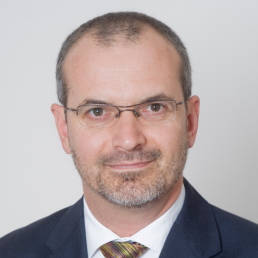Connectivity is a defining feature of the modern digital economy. The increasing ubiquity of mobile and fixed connectivity has enabled new digital economic models and these had already become part of people’s daily lives before the COVID-19 pandemic made digital interactions unavoidable.
Ubiquity and regular use have turned connectivity into a vital commodity which, paradoxically, telcos find difficult to grow revenues from. This commoditisation has steadily shrunk the value of telco shares over the past five years.
This is driving an industrywide imperative to change as Europe’s multibillion-dollar telecoms market seeks to embrace new technologies (cloud, AI, 5G), new ways of working (agile and DevOps) and new revenue opportunities (B2B and B2B2C). These trends play out against a backdrop of war in Ukraine, high inflation, a race for talent and an increasing need to show a strong commitment to climate change and social issues.
Technology, Services and Customers
Telcos are eager to reinvent themselves as technology companies that can continue to play a vital role in business and consumer communications. This transformation will need to be deep and will need to be made across dimensions such as technology, services and customers.
Technology
- Between 2021 and 2026 the amount of data created, captured, replicated or consumed in Europe will increase by over 126%, according to IDC’s latest Global Datasphere forecast. Coupled with regulatory obligations, this piles the pressure on European telcos to continue investing heavily in network capacity upgrades throughout the decade to maintain the performance of their core products.
- This includes the rollout of 5G access networks and increasing their fibre broadband footprints.
- Investing in capacity alone will only enable telcos to stand still. To improve the management, creation and experience of their services they must also invest in their core network architecture and supporting IT systems.
- In IDC’s 2022 digital transformation survey of European telcos, 58% cited BSS investment as the most impactful transformation investment to grow revenues. Other investments include modernising systems to be cloud native, converging core networks to support fixed and mobile services, and developing OSS/BSS platforms that support deeper network monetisation and better customer outcomes.
Services
- We expect FTTP to account for the majority of broadband lines by 2024 and to represent 58% of total lines by the end of 2025. On the mobile side, European operators are currently rolling out coverage of 5G, which will also require heavy investment.
- We expect 5G to account for the majority of mobile network connections by 2025, reaching 57% of all mobile connections by the end of that year.
- As telcos’ core networks and IT systems evolve, operators are also keen to explore new business models that expand their role in consumer and business value chains beyond connectivity. Many of these new business models, from private networks to 5G gaming bundles to network as a service, will require partner-driven ecosystems to supercharge and build extensive value multipliers.
- As such, 40% of large European operators identified integrating partner services into their ecosystem as a crucial impact of an API-driven strategy in IDC’s European Telco Digital Transformation Survey 2022. For these investments to pay off, telcos need to ensure that the APIs they provide are simple enough for developer partners to use and are supported across heterogenous network infrastructures.
Customers
- While the bulk of telco revenues has traditionally come from consumer services, the commoditisation of connectivity has made it harder to grow revenues by just selling minutes, texts and data volumes. In 5G, operators are looking to grow their place in the enterprise value chain.
- This means chasing opportunities such as the 83% of European enterprises that use or plan to use IoT technologies in their operations within the next two years. This shift in customer target cannot be successful without fundamental shifts in how telcos operate and strong insights from trusted partners that understand the B2B and B2B2C customer bases operators intend to create value for.
- As operators look to acquire new segments, they are also fighting across the board to retain the customers they do have. Over 95% of European telcos are investing in AI/ML, and their main use case is improving customer insight.
- Building deeper customer insights has a dual purpose — keeping customers happier for longer and helping telcos to identify, develop and productise the new value they offer. Those telcos with the deepest insights will be the most successful in the long term.
What’s Next for European Telcos
Success across all aspects of technology, services and customers requires careful balancing of many transformation initiatives. The competition for the financial and talent investment to succeed across the breadth of initiatives is further complicated by the macroeconomic and geopolitical headwinds blowing through Europe.
The underlying message is that Europe’s telcos can no longer afford to stand still. They must invest and improve across all aspects of their network, operations and organisation if they are to revitalise their space in the broader technology landscape.
IDC’s Telco Digital Summit, on November 22, will look at these themes in more detail. The summit will feature Europe’s leading telco analysts and senior telco executives, and will include keynotes from industry leaders to help attendees chart a path through the storms in the European telco market.


